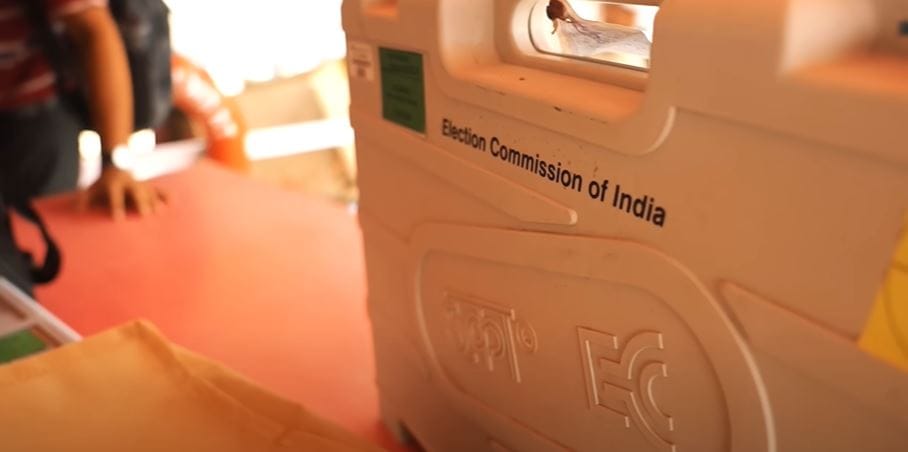Introduction: The Urgency of Inclusive Politics
In the aftermath of the 2024 Indian general elections, it is evident that the electorate’s choices have profound implications for the nation’s political landscape. The underrepresentation of the Muslim community in the current Lok Sabha is a pressing issue that requires an analytical examination of voting patterns, party strategies, and the broader implications for Indian democracy. This editorial explores the dynamics of Muslim political representation, the pitfalls of polarization, and the potential for development-focused politics to pave the way for a more inclusive future.
The Decline of Muslim Representation: An Analytical Perspective
The recent elections have resulted in the second-lowest number of Muslim MPs since India’s independence, with only 24 elected representatives. This decline, from a marginal high of 26 in 2019, reflects a complex interplay of political strategies and voter behavior. Historically, parties like Congress and other opposition factions have served as the mainstay for Muslim political aspirations. However, their failure to proportionately field Muslim candidates has led to a significant decrease in representation.
Polarization and Its Consequences
The competitive nature of Indian politics often leads to polarization, where one side’s actions provoke a corresponding reaction from the other. This phenomenon has been particularly detrimental to the Muslim community, as political parties have either exploited their votes or sidelined their genuine interests. The Congress, for instance, significantly reduced the number of Muslim candidates it fielded, dropping from 36 in 2019 to just 19 in the latest elections. Similarly, other parties like the TMC, SP, and Communists have also slashed their Muslim candidate quotas.
The Role of the BJP in Muslim Representation
Contrary to the narrative that solely blames the BJP for the decline in Muslim representation, it is essential to recognize the broader context. The BJP fielded only one Muslim candidate, reflecting its limited outreach to the community. However, the responsibility for the community’s political marginalization also lies with parties that have historically claimed to champion Muslim interests but failed to deliver proportional representation.
The Need for Development-Oriented Politics
The persistent focus on communal identity and tactical voting strategies has not served the Muslim community’s long-term interests. Instead, a shift towards development-oriented politics could offer a more sustainable path to empowerment. The BJP’s recent efforts to engage with Pasmanda Muslims, a group comprising primarily economically and socially marginalized individuals, highlight the potential benefits of this approach.
The Pasmanda Outreach: A Case Study
The BJP’s outreach to Pasmanda Muslims, who constitute the majority within the community, is a strategic move aimed at addressing caste discrimination, economic disparity, and educational backwardness. Initiatives such as fielding Pasmanda candidates in local elections and appointing a Pasmanda minister for minority welfare in Uttar Pradesh indicate a commitment to inclusive development. These efforts, however, need to be amplified and replicated across the political spectrum to foster genuine empowerment.
Bridging the Gap: From Tokenism to Genuine Inclusion
While the BJP’s Pasmanda outreach marks a step in the right direction, it is crucial to distinguish between tokenism and genuine inclusion. Political parties must move beyond symbolic gestures and ensure substantive representation and participation of Muslims in the political process. This involves not only fielding more Muslim candidates but also addressing systemic issues that hinder their socio-economic progress.
The Importance of Education and Economic Empowerment
Education and economic empowerment are pivotal in transforming the political landscape for Muslims in India. By prioritizing these areas, political parties can help bridge the gap between different segments within the community and promote a more cohesive and development-focused political agenda. Policies that enhance access to quality education and create economic opportunities will empower Muslims to actively participate in the political process and advocate for their interests effectively.
The Way Forward: Towards a Balanced Political Strategy
To achieve a balanced political strategy that ensures inclusive representation, political parties must adopt a multi-faceted approach. This involves recognizing and addressing the diverse needs of the Muslim community, fostering development-oriented policies, and actively combating polarization. By doing so, they can create a more equitable political environment where all citizens have a voice.
Building Alliances and Fostering Dialogue
Constructive dialogue and alliances between political parties and Muslim community leaders are essential for fostering trust and collaboration. These alliances should be based on mutual respect and a shared commitment to addressing the community’s socio-economic challenges. Engaging in meaningful dialogue can help bridge the gap between political intentions and the community’s aspirations.
Ensuring Accountability and Transparency
Accountability and transparency in the political process are crucial for building trust and ensuring that promises translate into tangible outcomes. Political parties must be held accountable for their commitments to the Muslim community, and mechanisms for monitoring and evaluating the impact of policies should be established. This will ensure that development initiatives are effectively implemented and that the community’s needs are adequately addressed.
Conclusion: Embracing a Future of Inclusive Development
In conclusion, the decline in Muslim representation in the current Lok Sabha underscores the urgent need for a paradigm shift in Indian politics. Moving away from divisive tactics and embracing a development-oriented approach can pave the way for genuine empowerment and inclusion. Political parties must prioritize education, economic empowerment, and substantive representation to create a more equitable and just society. By fostering dialogue, building alliances, and ensuring accountability, India can chart a course towards a future where all communities thrive together.

Sunil Garnayak is an expert in Indian news with extensive knowledge of the nation’s political, social, and economic landscape and international relations. With years of experience in journalism, Sunil delivers in-depth analysis and accurate reporting that keeps readers informed about the latest developments in India. His commitment to factual accuracy and nuanced storytelling ensures that his articles provide valuable insights into the country’s most pressing issues.



